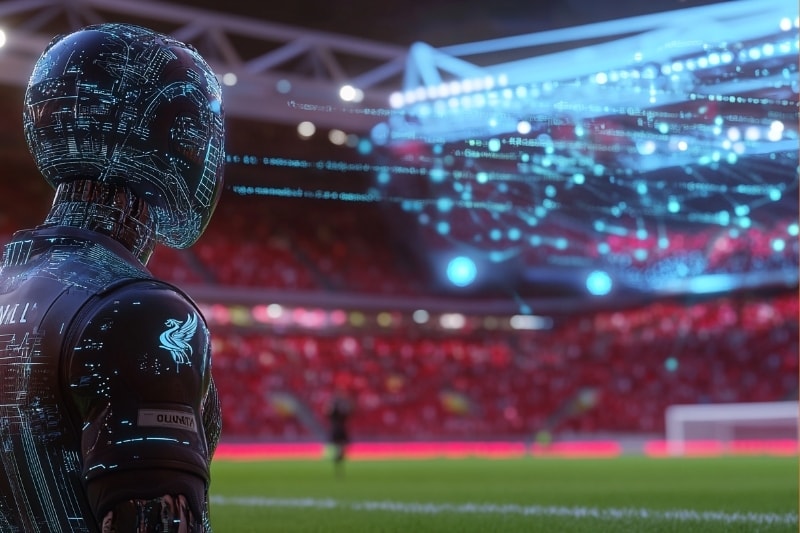AI is making waves in sports, and it’s changing the game in ways we never thought possible.
From improving athlete performance to enhancing fan experiences, AI is stepping into the spotlight. But it’s not just about flashy tech.
We’re talking about real, game-changing innovations that help coaches make smarter decisions, athletes train more efficiently and even predict outcomes with better accuracy.
Whether you’re an athlete, coach, or fan, AI is transforming how we play, watch, and understand sports.
Let’s break down exactly how AI is being used to level up the world of sports.
AI in sports for performance optimization 📈
Let’s dive into two key areas where AI is making a big impact: performance optimization and injury prevention.
Player analytics and monitoring
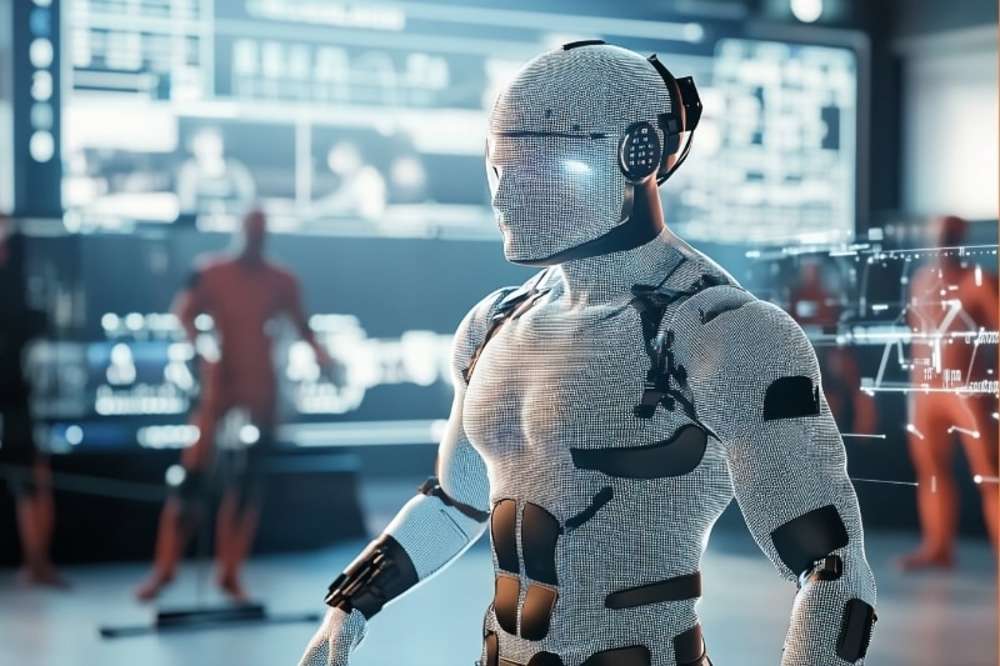
One of the most exciting uses of AI in sports is in player performance, analytics and monitoring. Thanks to AI-powered wearables and sensors, athletes can track their performance in real-time.
These devices monitor everything from heart rate to muscle exertion, giving coaches and trainers detailed insights into an athlete’s physical condition.
For example, a player in the National Football League wearing AI-driven sensors can have their speed, acceleration, and even fatigue levels measured throughout a game.
This data can then be analyzed to optimize future training sessions, ensuring that each player is getting the most out of their workouts without overtraining.
By identifying areas of weakness or potential for improvement, Artificial intelligence can help athletes fine-tune their player performance to reach new levels of excellence.
This technological advancement has created a thriving ecosystem of fitness tech companies partnering with sports clubs and organizations.
These partnerships focus on developing custom wearables and analytics platforms tailored to specific sports or team needs.
For example:
- Catapult Sports collaborates with numerous professional teams across various sports to provide GPS-based performance-tracking systems.
- Whoop has partnered with the NFL Players Association to provide personalized recovery and strain insights to all NFL players.
- Kitman Labs works with teams in the English Premier League, using AI to analyze data from multiple sources and provide actionable insights to the coaching staff.
Also, check out the latest fitness technology trends for this year here.
Injury prevention and recovery in sports industry
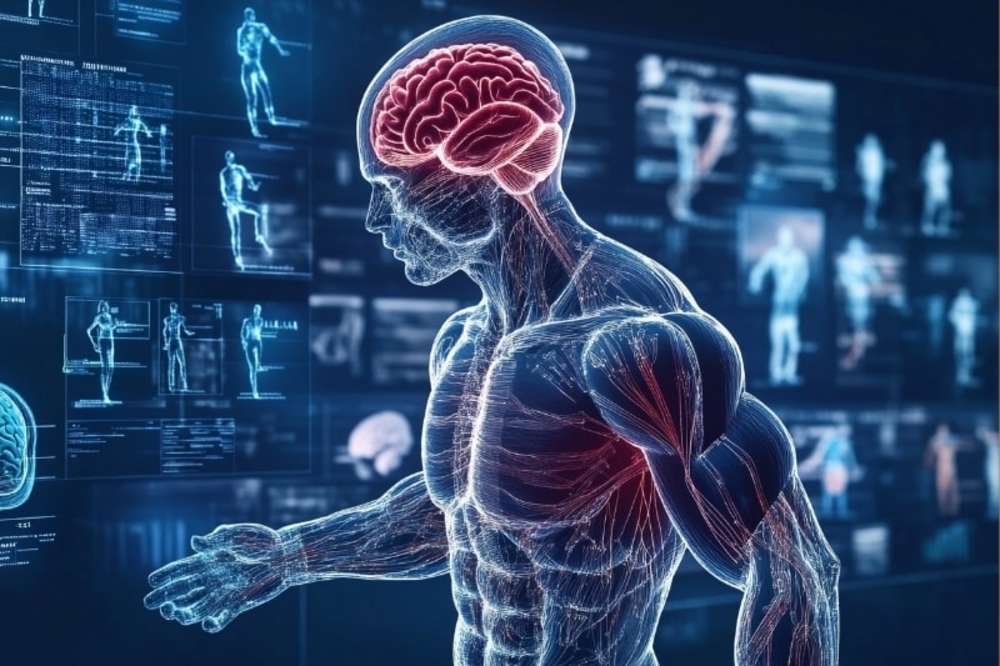
Injury prevention is another area where AI is making a massive difference. By analyzing patterns in movement and stress levels, AI can predict potential injuries before they happen.
For instance, Sports artificial intelligence systems can detect when a basketball player is at risk of suffering a knee injury based on changes in their movement patterns.
This proactive approach allows coaches to intervene early, making adjustments to training loads or exercises to prevent injuries from occurring.
Not only does this help keep athletes in peak condition, but it also improves their longevity in the sport.
AI can also assist in recovery by suggesting personalized rehabilitation plans based on an athlete’s specific injury, ensuring a faster and safer return to the game.
Examples of companies in this space include:
- Zone7, which uses AI to analyze athlete data and predict injury risk, working with teams in soccer, basketball, and American football.
- Sparta Science offers a movement health platform that uses AI to identify injury risks and suggest preventive measures.
By using these AI-powered solutions, teams can potentially:
- Reduce the frequency and severity of injuries
- Improve athlete longevity and career span
- Significantly reduce medical costs and insurance premiums
- Maintain a more consistent and healthy roster throughout the season
As AI technology continues to advance, we can expect even more sophisticated and accurate systems for performance optimization in sports, further blurring the lines between athletic prowess and technological innovation.
AI in sports game strategy and tactics
AI’s ability to process massive amounts of data quickly has made it a must have tool for developing strategies and improving team performance in sports.
Coaches and teams now have tools that enable them to predict opponents’ behaviors and adjust strategies on the fly.
Match analysis and strategy planning
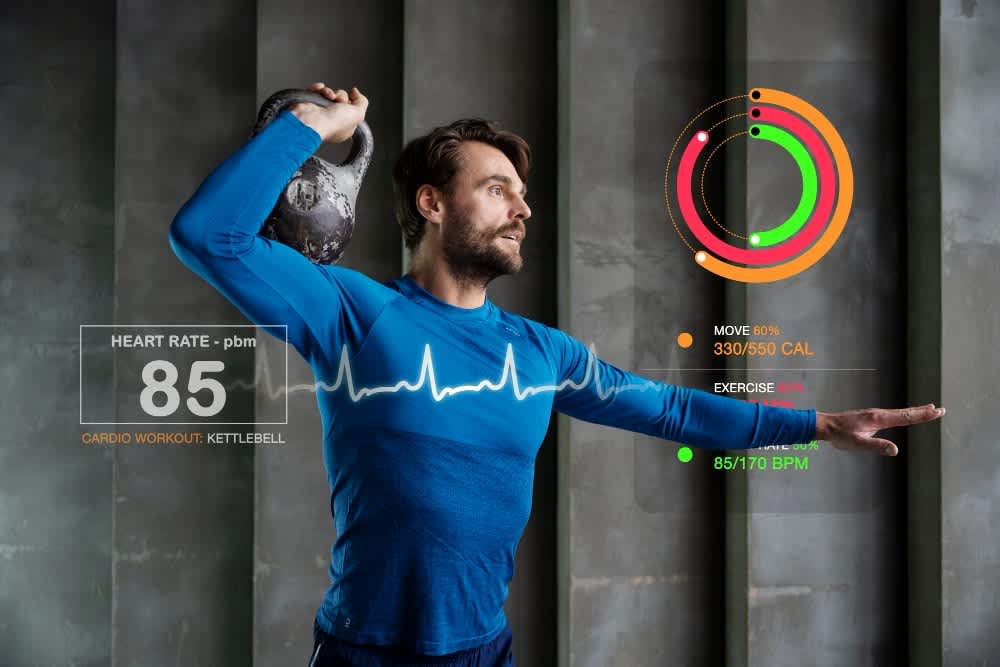
Coaches are no longer limited to manual video analysis or simple statistics.
Artificial Intelligence is now at the forefront, analyzing vast amounts of game footage and player data to create more precise strategies for sports teams and individuals.
By identifying patterns in an opponent’s behavior through sports analytics, Artificial intelligence can predict future plays, strengths, and weaknesses.
This gives coaches the ability to develop game strategies that counter their opponents in ways that weren’t possible before.
Key aspects of AI in match analysis and strategy planning include:
- Computer Vision: AI algorithms can analyze video footage to track player movements, ball possession, and tactical formations in real time.
- Pattern Recognition: Machine learning models can identify recurring patterns in opponent strategies and play styles.
- Predictive Analytics: AI can forecast likely outcomes of different tactical approaches based on historical data and current team conditions.
- Real-time Decision Support: During games, AI systems can provide coaches with instant insights and recommendations for tactical adjustments and game strategies.
Examples of companies that offer these include:
- Second Spectrum: Partners with the NBA to provide AI-powered analytics and visualizations for teams and broadcasts.
- Stats Perform: Offers AI-driven insights for various sports, helping teams optimize performance and strategy.
- Sportlogiq: Provides AI-powered analytics for ice hockey, soccer, and other sports, assisting coaches in strategy development.
Scouting and recruitment in the sports Industry

AI’s ability to process and analyze player performance metrics goes far beyond human capacity.
Through machine learning algorithms, Artificial intelligence can track player movements, measure skills, and even forecast a player’s future growth potential.
By analyzing these metrics, teams can identify talent in the sports industry that would otherwise be overlooked, giving clubs a competitive edge in recruitment.
Key features of AI in scouting and recruitment include:
- Multi-factor Analysis: AI can simultaneously evaluate numerous performance metrics, physical attributes, and intangible qualities.
- Cross-league Comparisons: Machine learning models can normalize data across different leagues and competition levels for fair comparisons.
- Predictive Modeling: AI can forecast a player’s future performance based on historical data of similar players and development patterns.
- Cultural Fit Assessment: Natural Language Processing (NLP) can analyze interviews and social media to gauge a player’s personality and potential team fit.
Examples of companies that offer these include:
- AiSCOUT: Offers an AI-powered talent identification platform that allows amateur players to upload their skills and be discovered by professional clubs.
- Wyscout: Provides AI-enhanced scouting tools and a vast database of player statistics and video footage for professional soccer teams.
- Scoutpanel: Uses machine learning algorithms to help basketball teams identify and evaluate talent more efficiently.
Check out how you can use AI to maximize your revenue as a fitness professional.
AI in sports operations and management
From enhancing the fan experience to optimizing marketing efforts, Artificial Intelligence is at the forefront of sports operations and management.
Here are two key examples of how AI is being used in this space:
Smart Stadiums

Artificial intelligence is playing a significant role in transforming traditional stadiums into “smart stadiums” by optimizing logistics, managing crowds, and enhancing security.
Through real-time data collection, AI systems can predict crowd flow, reduce wait times at entry points, and optimize parking logistics.
Additionally, AI-powered facial recognition and surveillance technologies are improving security, while personalized experiences, like in-seat food delivery based on preferences, are enhancing the fan experience.
The development of smart stadiums has led to numerous partnerships between stadium owners, sports organizations, and AI technology firms.
Examples include:
- IBM and Mercedes-Benz Stadium: Partnership to create a highly advanced, connected stadium experience for Atlanta Falcons fans.
- Cisco and SoFi Stadium: Collaboration to build one of the most technologically advanced stadiums for the Los Angeles Rams and Chargers.
- NEC and Northern Ireland Football League: Implementation of facial recognition technology for secure and efficient stadium access.
Sponsorship and Marketing optimization in sports industry
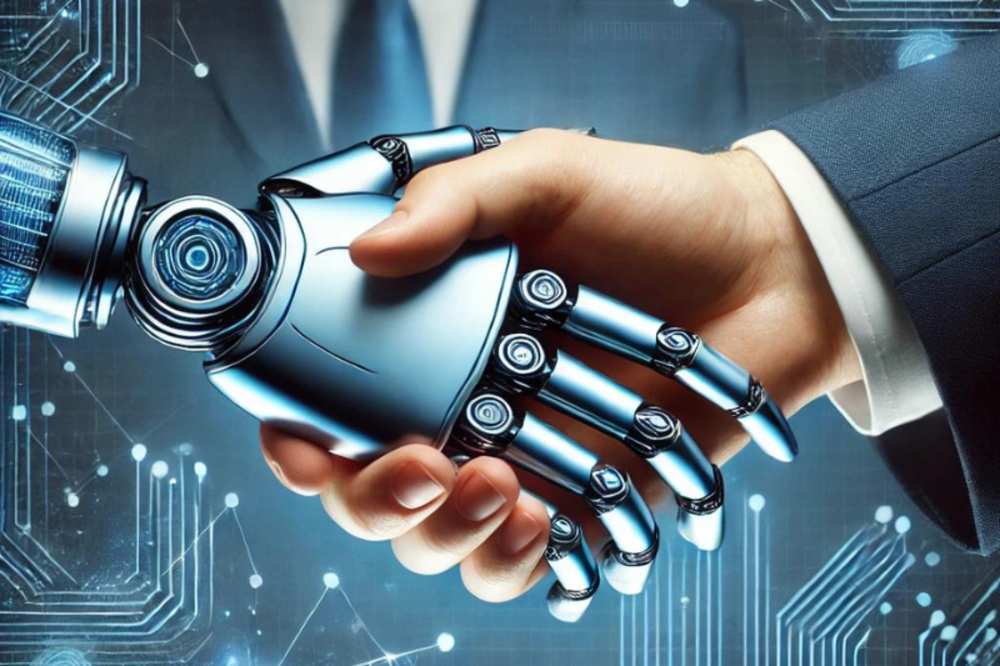
In the world of sports marketing, Sports Artificial Intelligence is a game-changer.
AI-powered platforms analyze vast amounts of data to help brands optimize sponsorship deals, track audience engagement, and create highly targeted marketing campaigns.
By analyzing social media trends, fan engagement, and consumer preferences, AI can help brands and teams ensure that their sponsorship investments yield the highest possible return on investment (ROI).
This data-driven approach allows businesses to adjust campaigns in real-time for maximum effectiveness.
Examples include:
- Hookit: Provides AI-powered sponsorship analytics to quantify and optimize sponsorship value across various platforms.
- Zoomph: Offers AI-driven social media analytics and audience insights for sports organizations and sponsors.
- Two Circles: Uses data-driven insights and AI to help sports organizations grow relationships with fans and partners.
Enhancing fan engagement through AI
By using AI technology, sports organizations are able to deliver more personalized, interactive, and engaging experiences that cater to the evolving demands of modern audiences.
Here’s how AI is being used to enhance fan engagement:
Personalized fan experiences

With AI-driven apps, fans are no longer just passive observers; they’re becoming active participants in the sporting experience.
AI analyzes fan behavior, preferences, and interactions to deliver personalized content, from tailored notifications about favorite players to real-time updates on matches they care about.
This level of customization makes every fan feel uniquely connected to their team.
Whether it’s personalized marketing offers for merchandise or customized game-day experiences, AI helps bring fans closer to the action.
Examples of companies that offer these services include:
- IBM and the US Open Tennis Championships: Developed the “Watson” AI platform to enhance fan engagement through personalized content and real-time match insights.
- Microsoft and Real Madrid: Partnered to create a digital platform that offers fans personalized experiences and content across various devices.
- SAP and the NBA: Collaborated on the NBA.com stats platform, providing fans with in-depth, personalized statistics and insights.
Automated content generation and highlights

In the fast-paced world of sports, keeping up with live events can be overwhelming for fans, especially when they miss a game or can’t follow every moment.
AI is revolutionizing content production by automatically generating game highlights and creating personalized video recaps.
These AI systems can analyze game footage in real-time, select key moments, and generate highlight reels instantly, allowing fans to catch up on the most important plays.
This not only enhances the fan experience but also significantly reduces production costs for media outlets.
Examples include:
- Automated Insights: Provides AI-powered natural language generation for creating written sports reports and recaps.
- WSC Sports: Offers an AI platform that automatically creates and distributes sports video highlights in real time.
- Thuuz Sports: Uses AI to generate excitement ratings for games and create personalized highlight reels.
AI in refereeing and decision-making
AI is giving athletes, coaches, and teams a massive edge, transforming how sports events are planned and executed.
Video assistant referee (VAR) and instant replay systems
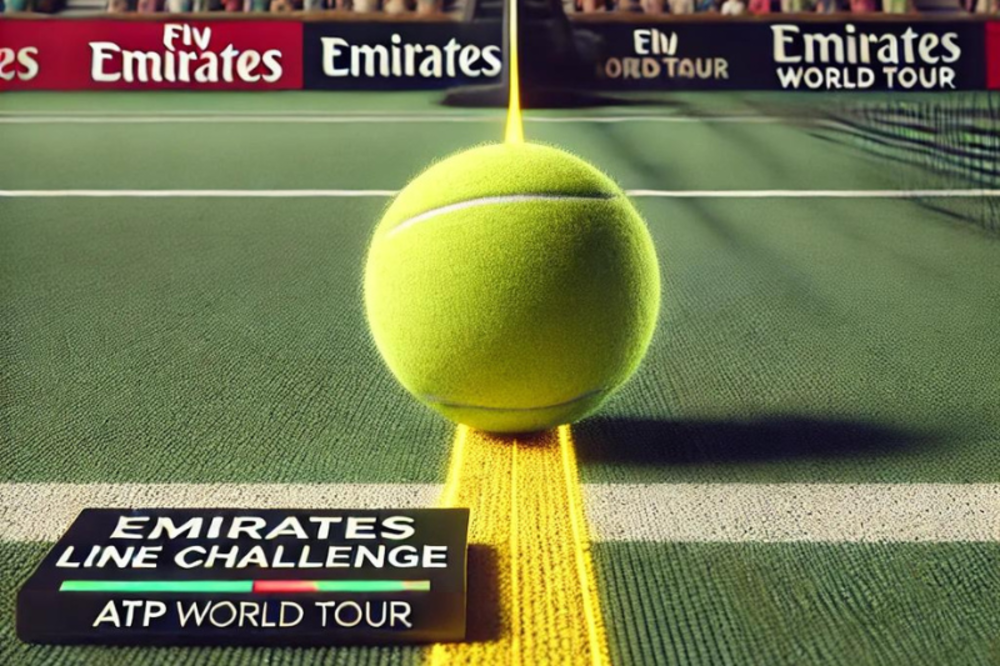
In sports like soccer and basketball, AI-powered video analysis tools are enhancing the accuracy of refereeing decisions.
Video Assistant Referee (VAR) systems use AI to review footage and identify critical moments, such as offside calls, handball incidents, or fouls.
These AI systems can analyze multiple camera angles and provide recommendations to the referee in real-time, reducing the chances of human error.
Sports tech companies are capitalizing on this trend by creating AI-integrated video replay tools for referees and governing bodies.
Platforms like Hawk-Eye in tennis and cricket, or ChyronHego in soccer, offer AI-driven technology that assists referees with making accurate decisions quickly.
These systems are widely adopted in professional leagues, where the stakes are high, ensuring fairness in the game.
AI-Assisted officiating in real-time
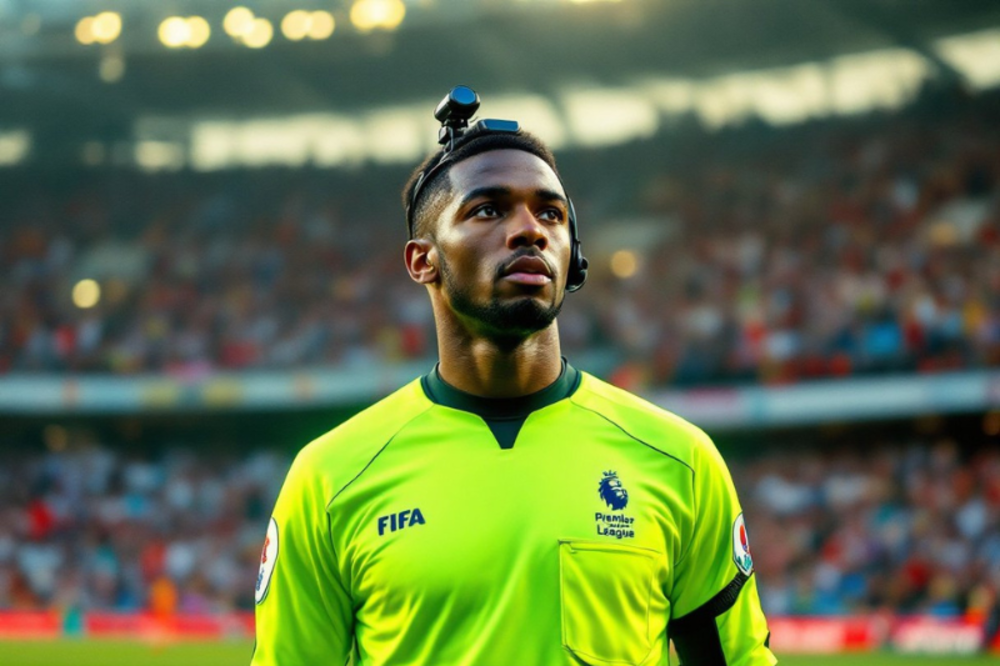
AI is also being integrated into real-time decision-making during live matches.
For instance, AI-powered sensors in the ball, goalposts, or player wearables can track minute details like ball trajectory, speed, and whether a foul has been committed.
These systems send data to referees instantly, aiding them in making the right call, even in complex situations where human eyes may miss crucial details.
Companies like Kinexon and Zebra Technologies are providing AI-driven sensor systems that allow real-time tracking and decision support during games.
These platforms are increasingly used in sports such as American football, rugby, and even basketball, helping referees make quicker, more accurate decisions while maintaining the pace of the game.
Challenges and ethical concerns of AI in sports
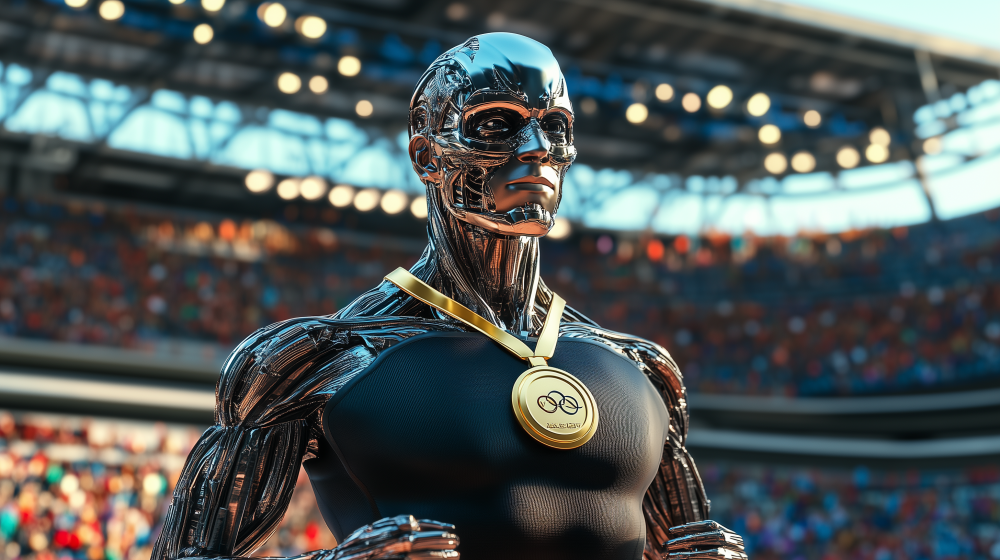
While AI is driving remarkable advancements in sports, it also comes with a set of challenges and ethical concerns.
As teams, leagues, and organizations increasingly rely on AI, it’s important to address these issues to ensure the technology is used responsibly and equitably.
Data privacy and security 🔒
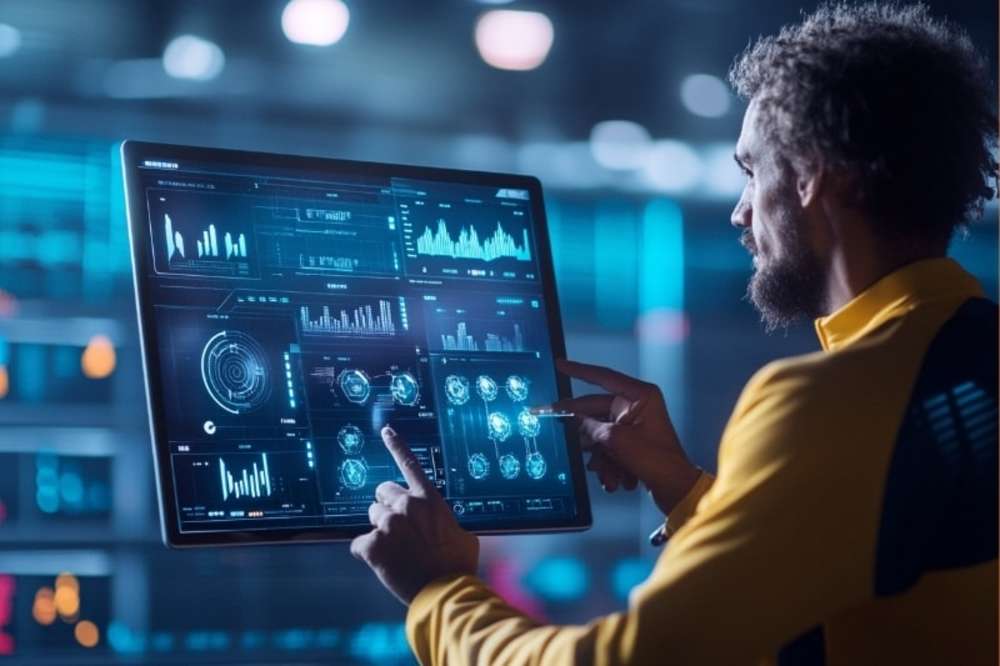
One of the biggest challenges in using AI is ensuring the privacy and security of the data being collected.
AI systems require vast amounts of player data, including physical metrics, health information, and personal performance statistics.
This raises concerns about how the data is stored, who has access to it, and how it might be used beyond the intended purposes.
Ethical Concern: Players’ personal data could potentially be misused for commercial gains or even leaked, leading to privacy violations.
There needs to be strict regulation and transparent data governance in place to protect athletes’ personal information.
Bias and fairness in AI algorithms
AI algorithms are only as good as the data they are trained on.
If the data sets used to train AI systems are biased, the outputs will reflect those biases, leading to unfair advantages or disadvantages for certain athletes or teams.
For example, if AI recruitment tools prioritize certain physical traits or historical patterns that exclude minority groups, it could lead to systemic discrimination.
Ethical Concern: There’s a risk that biased AI algorithms could reinforce inequalities in talent selection, coaching decisions, or even player health assessments.
Ensuring fairness in AI requires diversifying the data inputs and regularly auditing AI systems for bias.
Over-reliance on AI and loss of human intuition
As AI becomes more prevalent in decision-making, there’s a concern that teams and coaches might become overly reliant on it, losing sight of the human intuition and experience that has long been a key part of sports.
AI can process data faster, but it doesn’t account for intangible factors like team chemistry, leadership, or the psychological resilience of athletes.
Ethical Concern: Over-reliance on AI might reduce human agency in decision-making, potentially leading to decisions that lack the personal touch or situational awareness that comes from human expertise.
Striking the right balance between AI insights and human judgment is crucial.
Future of AI in sports
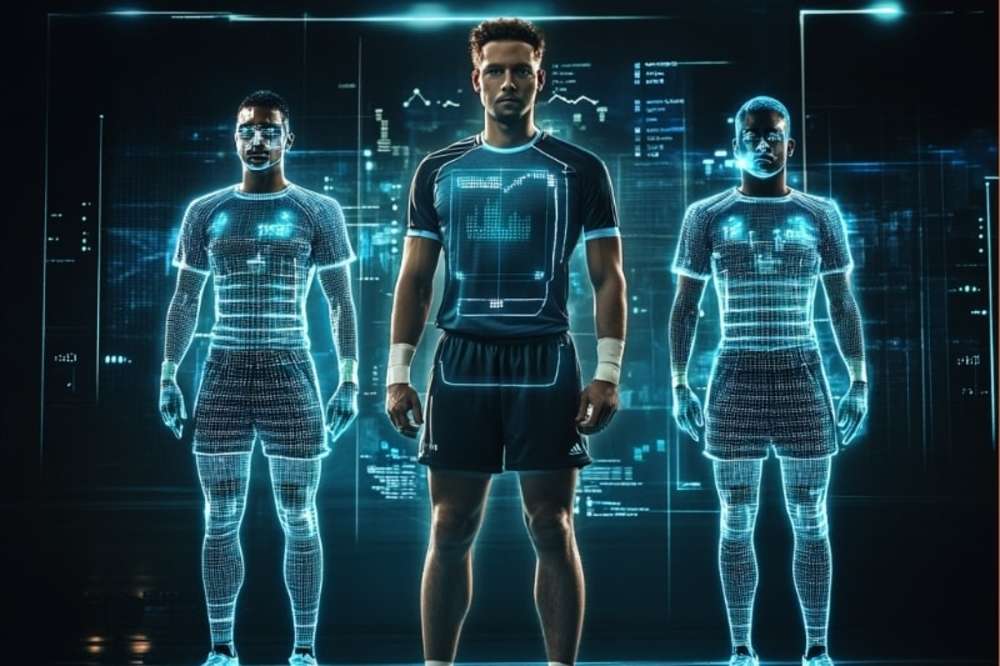
As AI continues to evolve, its future in sports looks incredibly dynamic, with emerging trends pushing the boundaries of what’s possible.
These advancements promise to revolutionize not just how athletes train and compete, but also how sports organizations operate at every level.
Here are some key trends shaping the future of AI in sports:
AI-Driven predictive analytics
One of the most exciting areas of AI development in sports is predictive analytics. With AI’s ability to process and analyze large data sets in real-time, predictive models are becoming increasingly accurate.
These models can forecast game outcomes, predict player injuries based on historical data, and even suggest optimal in-game decisions based on live statistics.
Coaches and managers can use these insights to make smarter, faster decisions during critical moments in games.
This trend opens doors for sports tech companies to develop more sophisticated predictive analytics platforms.
By combining AI with real-time data feeds, companies can provide teams with actionable insights that weren’t accessible before.
Businesses that specialize in AI-powered analytics could partner with teams to enhance their performance strategy and gain a competitive edge.
Virtual Reality (VR) Integration
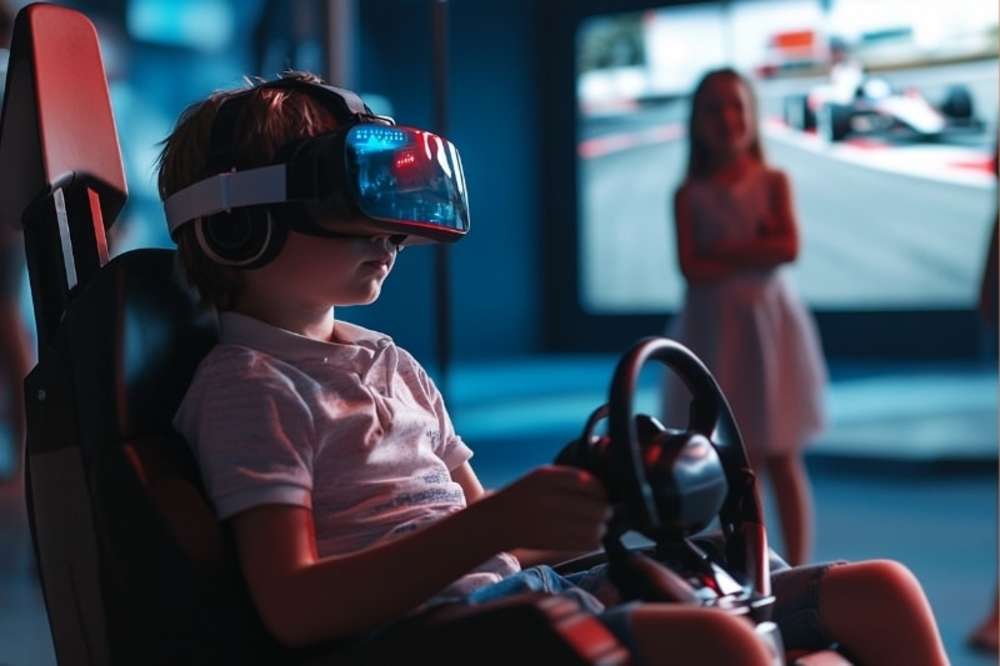
AI and virtual reality are converging to create immersive training experiences for athletes.
With AI’s ability to simulate real-world scenarios and analyze an athlete’s performance within a VR environment, players can train in hyper-realistic situations without the physical toll of live practice.
These AI-driven VR simulations can replicate opposing teams’ tactics, game conditions, and specific plays, allowing athletes to mentally prepare for various game-day challenges.
Companies that merge AI and VR technologies can build training systems tailored to teams’ specific needs.
From virtual match simulations to real-time feedback on performance, AI and VR tools can help players refine their skills without the risks associated with intense physical training.
This creates an opportunity for businesses to collaborate with sports teams in developing bespoke training platforms that enhance both mental and physical performance.
AI in mental coaching 🧠
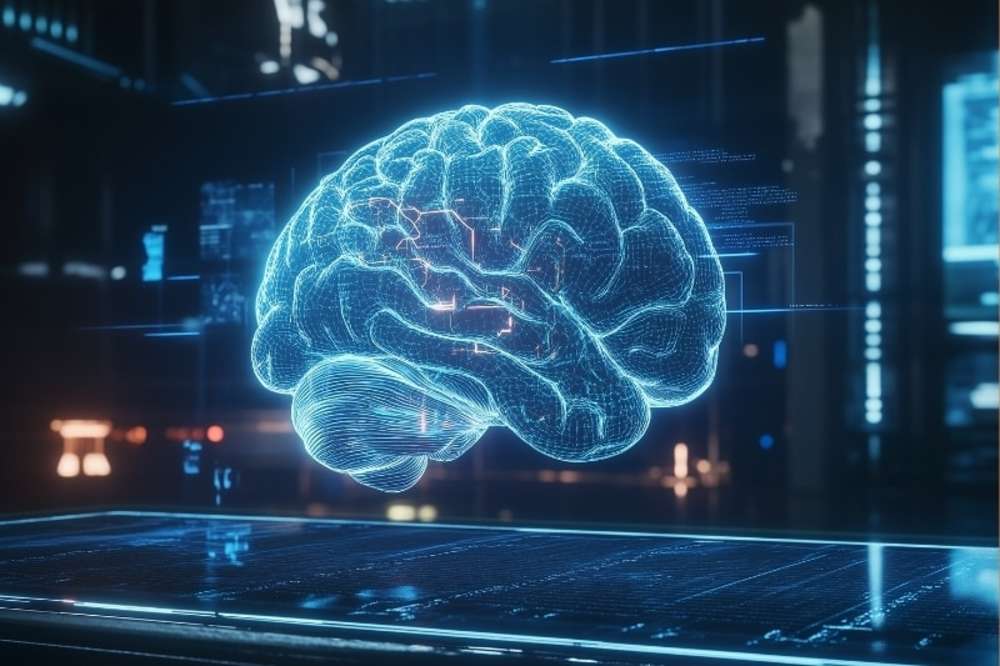
AI’s role in mental performance is another burgeoning trend in sports.
By analyzing patterns in an athlete’s mental state—such as stress levels, focus, and motivation—AI-driven systems can provide personalized mental coaching programs.
These programs can offer real-time suggestions for stress management, improving focus during games, and enhancing overall mental well-being, all of which are crucial for peak athletic performance.
Mental performance is an untapped area where AI can make a substantial impact.
Companies specializing in AI for mental health can expand their offerings to cater to athletes, creating platforms that assess mental states through biometric data and provide tailored coaching.
This innovation can help teams optimize not just physical performance, but also mental resilience, offering a holistic approach to athlete development.
Conclusion
Artificial intelligence is changing the game when it comes to sports—literally.
From enhancing player performance and preventing injuries to creating smarter strategies and improving fan engagement, AI is revolutionizing the entire sports industry, giving athletes, coaches, and teams a massive edge.
The best part? We’re just scratching the surface, and it’s exciting to see how sports journalism is adapting to cover these advancements.
So whether you’re on the field or in the stands, AI is here to take things to the next level.
Keep watching, because this is just the beginning!
